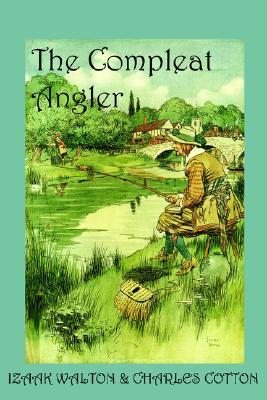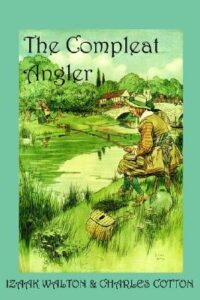Chapter XI — The Compleat Angler
byChapter XI – The Compleat Angler introduces the Tench, a fish regarded not for its flavor but for its long-standing reputation as a natural healer. Piscator observes that Tench thrive in calm, still waters such as ponds and quiet ditches, rather than fast-flowing rivers. Though some exceptions exist—like certain parts of Dorsetshire where Tench are found in streams—this preference for stillness aligns with their healing symbolism. The fish is described with care: smooth, soft scales, red-ringed golden eyes, and a pair of whisker-like appendages hanging from its mouth. These features, Piscator notes, mark the Tench as both distinct and gentle in nature. Its presence in such peaceful waters adds to the belief that it has curative abilities. This connection between the fish’s environment and its supposed healing power provides a rich metaphor for serenity aiding in recovery, an idea deeply appreciated by naturalists of the time.
The lore surrounding the Tench reaches further into the realm of medicinal wonder. According to foreign physicians, two small stones found within the Tench’s head are believed to carry therapeutic value, though this claim remains largely unproven by empirical study. Rondeletius, a respected figure in natural history, reportedly witnessed a Tench applied to the soles of a sick man’s feet, resulting in a noticeable recovery. Piscator attributes this practice to the Jews of Rome, whose medical wisdom, he suggests, may trace back to King Solomon’s era. Such anecdotes blend superstition and folk medicine, painting the Tench not just as a fish but as a creature revered for its symbolic and healing presence. The power of observation, passed through generations, has helped sustain these beliefs, even in the absence of modern scientific backing. For anglers and thinkers alike, this adds a layer of fascination beyond the usual pursuit of sport or food.
Though intrigued, Piscator quickly distances himself from making bold claims about the medicinal uses of the Tench or any other fish. He humbly states that his knowledge is grounded in angling rather than apothecary practice, making it clear he prefers to stay within the boundaries of what he knows best. This restraint contrasts with those who boldly venture into disciplines without sufficient understanding, a behavior he gently critiques. The tale thus serves as a subtle lesson—not only in the peculiar virtues of the Tench but in the wisdom of intellectual humility. Piscator’s approach invites the reader to appreciate both the lore and limits of what nature may offer. The emphasis is less on proof and more on the preservation of tradition, reminding readers that mystery can coexist with reverence in the angling life.
Still, the Tench’s role in both pond and tale is worth preserving. While it may not be the first fish sought for supper, its silent reputation as the “physician of fishes”—a nickname based on its supposed ability to heal other aquatic creatures—adds dignity to its existence. Even its mucus was once thought to carry antiseptic properties, especially valuable in shared waters where wounds and illness could easily spread. Anglers in Piscator’s time may have rarely tasted Tench, but they respected its calm presence and its mythical status as nature’s underwater doctor. The idea that other fish might seek it out instinctively for healing, though unverified, reveals a kind of ecological intuition deeply rooted in human observation. Such beliefs, however quaint, contributed to early understandings of ecosystems and the roles certain creatures play beyond direct consumption. This blend of fact, folklore, and reflection enriches the angler’s experience and reinforces nature’s layered complexity.
As the chapter nears its close, Piscator leaves the medicinal debate behind and returns to his preferred subject—technique. The Tench, though slow and often elusive, can be caught with patience and the right bait. Its feeding habits require the angler to approach with care, using light tackle and subtle movements, especially in quiet waters where every ripple matters. Despite its understated reputation, the Tench challenges even skilled anglers to fine-tune their craft. As with much in nature, simplicity is deceptive, and the rewards lie not only in the catch but in the understanding gained through trying. Piscator’s respect for this humble fish is rooted not in its size or fight, but in the thoughtful attention it demands—a reminder that in angling, as in life, value often lies beneath the surface.


